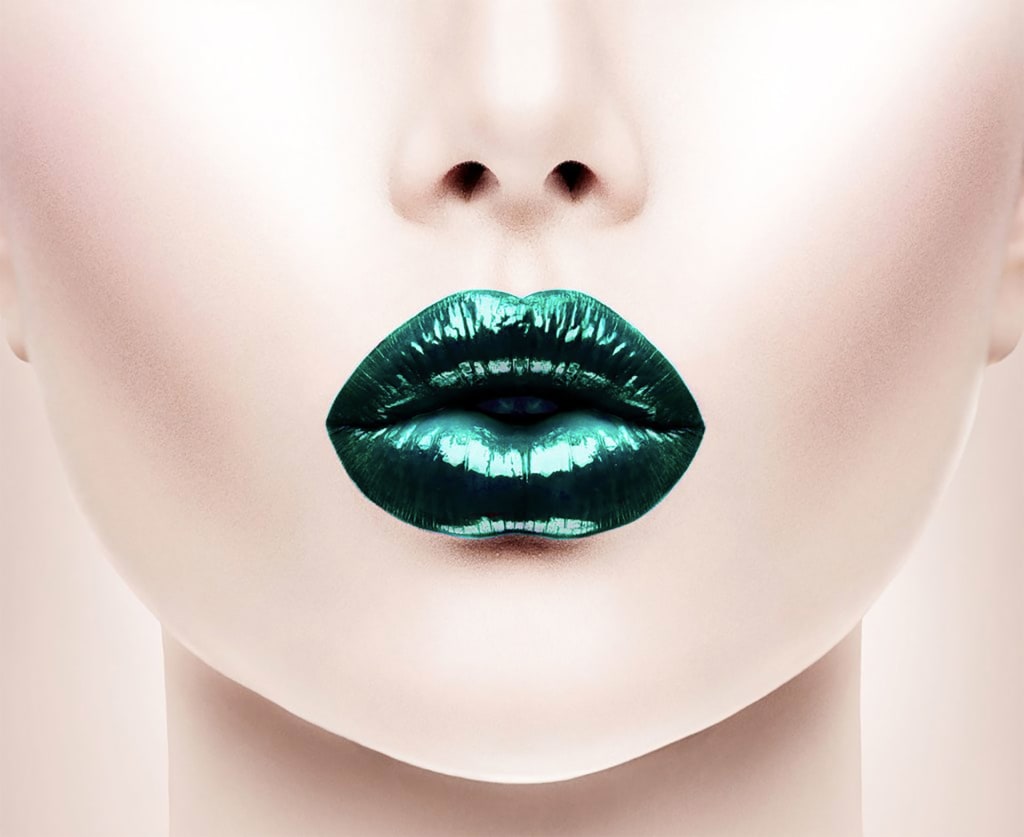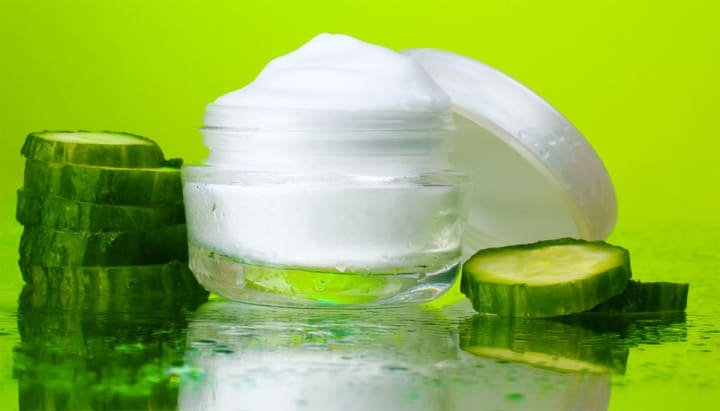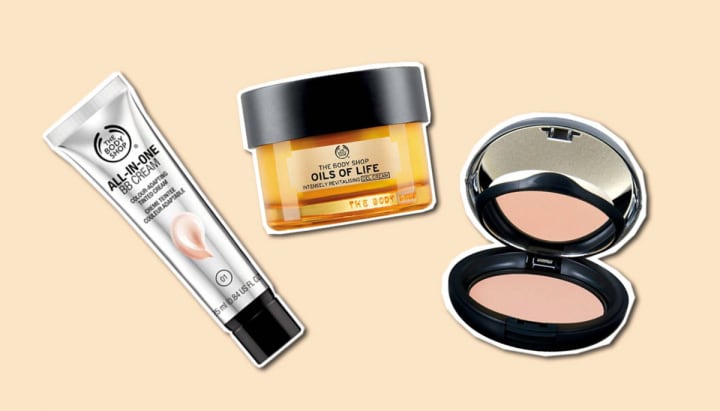How the Cosmetics Industry is Greening Up
Recent success comes natural to cosmetic companies as they go green.

See if you can guess the common theme in these marketing success stories.
- The Body Shop is an England based chain of skin- and hair-care stores. The first one opened in 1976 on a $6,500 bank loan and offered 15 products packaged in hand-labeled, inexpensive lab-sample jars. Today, the chain's mostly franchised stores number over 400 in some 34 countries and in 1988 had annual sales totaling $500 million.
- A toothpaste called Tom's of Maine has overtaken Aim as the number-four brand in the Portland, Maine, area, making headlines in The New York Times. Tom Chappell of Kennebunkport, the man behind the six products bearing his name-there's also a deodorant, shaving cream, flossing ribbon, mouthwash and shampoo—has seen his company's sales doubled between 1986 and 1989.
- Kiehl's Pharmacy is a family-run operation in New York City that's been around since 1851. While the shop Still sells its Own Cosmetics, fragrances and skin-care treatments over the counter and by phone to such celebrity clients as Susan Sarandon, Cher and Tatum O'Neal, they are also available in over 200 stores across the US, as well as in Europe and Japan. Yearly sales are estimated at $3 million.
Mother Nature in a Jar

Image via Huffington Post
These companies came by their achievements, in a literal sense, quite naturally. After a decade of high-tech beauty, they offer shampoos, cosmetics and moisturizers that are formulated around such natural ingredients as plants, herbs, trees, roots, leaves, flowers and fruits, as Well as earth substances such as clay and chalk. Suddenly, what's selling is Mother Nature in a jar.
From aloe and chamomile to lavender and peppermint, the word on the tip of beauty-industry tongues is "botanicals." And this new crop of natural products—chamomile shampoo, algae masque and calendula herbal toner, for example—aren't showing up in health-food stores, but rather on Rodeo Drive.
Not that a few big names in the beauty industry haven't been adding—and advertising—botanicals for some time. Clarins, in particular, a French skin-care company, has offered treatments created with vegetable oils, plant extracts and vitamins in the US for over nine years. Still others, like Revlon, Adrien Arpel and Avon, have just jumped on the back to-basics bandwagon
The question is why. Do products with ingredients usually associated with potions actually work better than the space-age—sounding products we've grown accustomed to?
According to Darrell Rigel, M.D., clinical assistant professor of dermatology at New York University, “The fact that a product's ingredients are natural rather than synthetic does not make them better." And William Jarvis, Ph.D., president of the National Council Against Health Fraud and a professor of preventive medicine at Loma Linda University in California, points out that natural substances are as apt to be allergenic as their synthetic counterparts: "People who are sensitive are going to be sensitive to natural products, too."
If these new products aren't necessarily superior to synthetic versions, why are they turning the beauty business on its ear?
Cosmetics with a Conscience

Image via Elle
One reason is that the companies behind these products have extended their interest from beauty care to "planet care." For instance, Horst Rechelbacher, founder and chairman of Aveda, a manufacturer of natural cosmetics and treatments based on aromatherapy, believes that he isn't making products just for people, but for the environment. "Our company goal is to have 100 percent organic products," he states. "By getting materials from petroleum, you pollute the atmosphere; by getting materials from plants, you help the atmosphere." Welcome to the world of cosmetics with a conscience.
Anita Roddick, the former United Nations worker who founded The Body Shop on the traditional beauty practices of women around the world, also tries to use naturally based, close-to-the-source ingredients as much as possible. For instance, when she discovered that Polynesian women attributed the deep shine of their hair to conditioning with cocoa butter, she promptly started testing it herself as a possible product ingredient. The Body Shop is now one of the largest importers of cocoa butter in the world.
Doing its share to provide environmentally friendly skin treatments and fragrances, all Kiehl's botanically oriented products are made without mineral oil, a petroleum by-product, and say so on label.
The environmental commitment behind these companies goes well beyond the mostly or totally biodegradable ingredients in their products. The Body Shop, Aveda and Tom's of Maine use only recycled paper in their packaging, including shopping bags. Rechelbacher is also lobbying manufacturers to develop a plastic made solely from plant sources—he believes such a development is less than a year away. In the meantime, both Aveda and The Body Shop will recycle their bottles for customers who return them.
For consumers with an environmental mindset, What does all this - mean? Simply that by choosing a botanically based cream or cleanser, they will have a hand in helping to lengthen the life of the environment. That fact seems to be enough to lure them away from products produced in a test tube.
Good for People and Animals

Image via Elle South
Another factor in the success of back to-beauty-basics is the refusal of these companies to test ingredients or final products on animals. According to Rechelbacher, Aveda doesn't need to test products on animals because they don't use any ingredients that could be harmful to humans. The Body Shop, which tests only on human volunteers, also pledges to use vegetable rather than animal ingredients whenever possible, and it requires regular written confirmation from outside suppliers that no animal testing has been carried out on their ingredients for five years prior to use in Body Shop products. For consumers, that makes choosing products that protect animal rights simple.
Healthy Chemophobia

Image via Principia Consulting
However, the rising number of chemical-backfire stories, where products sworn to be safe—from apples to asbestos in our homes— turned out to be deadly, may be the biggest attraction to natural beauty products. People now are more leery of what they're putting in and on their bodies, and products with ingredients perceived as safe are reassuring. According to John Eldredge, vice president of marketing at Tom's of Maine, this groundswell may explain the success of their toothpaste. “We use very basic ingredients that work well, such as tree and herbal resins, and that people can understand and feel comfortable with. There are not a lot of multi-syllable, highly synthesized types of names on the label like you’d find in another toothpaste.”
On a similar note, Rechelbacher has gone so far as to contract farmers to grow chemical-free raw materials. This is an expensive proposition - as choosing natural ingredients and products often is - but one that he, and apparently many of us, believe is worthwhile.
About the Creator
George Gott
Writer & Social Media Editor for Jerrickmedia who is an avid reader of sci-fi and a fierce defender of women, minority, and LGBTQ rights.






Comments
There are no comments for this story
Be the first to respond and start the conversation.